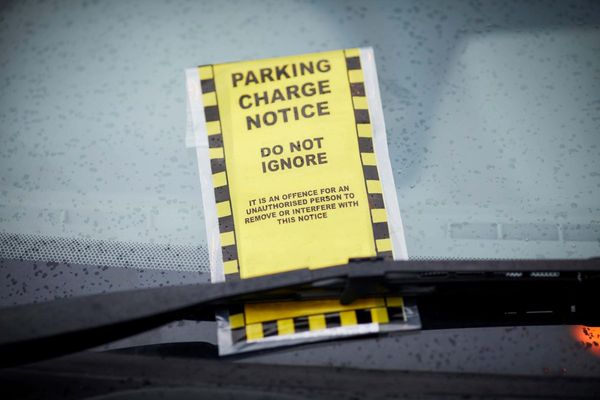WASHINGTON _ Officials in California are crying foul over a Trump administration plan to slash firefighting assistance payments to the state, which could amount to millions of dollars in lost income for fire departments.
The U.S. Forest Service, in turn, is accusing the local fire departments in the state of over-billing the federal government as part of a federal-state partnership, the California Fire Assistance Agreement (CFAA), that was inked in 2015 and expires in 2020.
The disagreement between state and federal fire officials now threatens to upend negotiations to extend that agreement, which state Fire and Rescue Chief Brian Marshall said is essential to combat not just wildfires, but other natural disasters in California.
"Local government fire departments respond across jurisdictional boundaries every day," Marshall told McClatchy. "We cannot afford for this agreement to expire, that would have a devastating effect on the California wildfire system."
As California braces for what is expected to be another extreme fire year, the rising tensions have so alarmed the state's senior senator that she sent a letter this week calling for a truce.
"Around 60% of forested land in California is owned by the federal government. Wildfires don't stop at jurisdictional boundaries, so a unified federal-state approach is the only way to properly protect lives and property," Democratic Sen. Dianne Feinstein wrote in a May 14 letter to Agriculture Secretary Sonny Perdue and U.S. Forest Service Chief Vicky Christensen.
"Given that California is facing another year of significant wildfire risk, I ask that you delay implementation of any recommended reimbursement changes and that you work with the State to address any issues as part of the renegotiation of the existing CFAA," she continued.
The Forest Service insists it is moving ahead with its new demands after completing an of the fire assistance agreement in January.
"The Forest Service is ultimately accountable to American taxpayers and has the responsibility to practice due diligence in review of all fire-related claims made by local governments," the agency said in a statement to McClatchy. "The audit found several areas where the CFAA is not being managed to ensure mutual benefit between the Forest Service and the State of California."
Specifically, the Forest Service alleges that the state submitted inaccurate invoices in his request for federal reimbursement, "resulting in potential overpayments."
According to the Governor's Office of Emergency Services (OES), the Forest Service still owes local fire departments $9.3 million in reimbursements for costs incurred during the 2018 fire season, out of $72 million total that state firefighters billed to the federal agency.
"Local government fire departments are out this money and they're getting ready to close their books," said Marshall. If the Forest Service decides not to repay some portion of what's owed, it could put a major dent in their budgets, he said.
Reimbursement rates are only part of the California government's concerns, however.
In an April 24 letter to Randy Moore, the regional forester for the Pacific Southwest Division of the Department of Agriculture, Marshall warned that new reimbursement requirements that the Forest Service plans to enforce, "would be cumbersome and would severely impact California's ability to respond to fires."
In particular, the new requirements "will have a significant impact on volunteer fire agencies," Marshall wrote, because those agencies have to be reimbursed before they can pay their firefighters. Volunteer firefighters make up one-third of the local fire departments that respond to federal and state requests for help fighting fires, he wrote.
The California Fire Chiefs Association, California Metro Chiefs, Fire Districts Association of California and League of California Cities Fire Chiefs also sent a joint letter to the Forest Service on April 25 objecting to "unilateral, mid-contract changes to its reimbursement protocols for local agencies" under the CFAA.
California's firefighting assistance agreement with the federal government, which has existed in some form since 1961, provides the terms by which state and federal agencies reimburse those local fire departments for their help.
There have been growing strains between the partners, however.
California fire departments have been frustrated by the Forest Service's slow pace of reimbursement in recent years. According to the Governor's Office of Emergency Services, 89% of Forest Service payments to local departments were late in 2016.
That prompted OES Director Mark Ghilarducci to write a letter to the Forest Service in 2017 complaining that the federal agency was failing to comply with their joint firefighting agreement.
In response, the Forest Service began the audit that it completed in January. It has not shared the audit with the state, but it informed state agencies of its conclusions in February.
The new demands from the Forest Service also come against the backdrop of an ongoing political fight between California and President Donald Trump, who has lobbed a series of critiques and threats regarding the cost of fighting wildfires in the state.
"Billions of dollars are sent to the State of California for Forest fires that, with proper Forest Management, would never happen," Trump tweeted in January. "Unless they get their act together, which is unlikely, I have ordered FEMA to send no more money. It is a disgraceful situation in lives & money!"
FEMA, the federal agency that provides emergency relief after natural disasters, has continued to provide federal assistance to victims of California's 2018 wildfires _ including the Camp Fire in Butte County and Woolsey Fire in Los Angeles and Ventura Counties _ the mostly deadly and destructive fire season in history.
The Forest Service's new reimbursement standards, however, could result in the Trump administration cutting other wildfire-related funding for California. Marshall said that because of the Forest Service audit, other federal agencies, including the Bureau of Land Management and National Parks Service, were reassessing their reimbursement practices.
"We have a system in California that is often copied by other states and countries," Marshall said. Keeping the system intact, "so we can continue to provide mutual aid to fire departments throughout the state, is a must."






